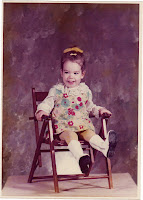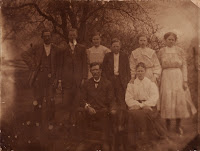My nephew and niece are darling children. 4 and 6 years of age. I see them once a year, and am amazed to see the similarities between them as a set and my brother and I growing up. The boy is my brother's clone. Mom played an old cassette tape from 1979 (my brother was 4), and we discovered that his son even has the same laugh he did as a child! The daughter does not favor me in the face, but she has my tall, thin frame. Beautiful child.
Snow again today, and a chance Sunday night. Winter in Memphis is usually much milder than this. Fun! Hot chocolate calleth.















